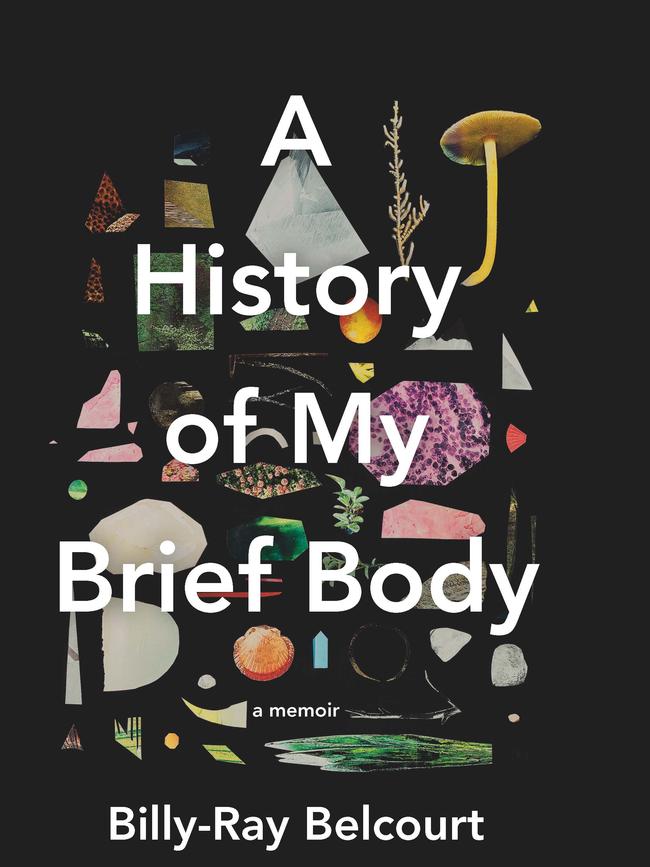Billy-Ray Belcourt’s A History of My Brief Body charts the trauma of a generation
When writer Billy-Ray Belcourt downloaded gay hook-up app Grindr, he wielded it “like a weapon in a war of emotion”.

Billy-Ray Belcourt is a descendant of the tiny Driftpile Cree Nation from the north of Edmonton, Canada. He grew up on reserve – marked, he believed by “a history of colonisation and a public discourse of race we can’t peel from our skin” and feeling like “a container for the terror of the past and the beauty that it can’t in the end negate”.
Belcourt’s parents’ relationship disintegrated and, having “lived 12 months in an ecology of complicated love,” Belcourt was placed in the care of his tender maternal grandmother, nôhkom, who moves “in and out of my books as though wind in a photograph”.
He grew up to become the first First Nations student from Canada to be granted a Rhodes scholarship (he has a masters in women’s studies from Oxford). He is now a poet, academic, and gay man, who has poured many of his ideas about identity and sexuality into a precociously beautiful memoir, A History of My Brief Body.
The book, comprising essays and vignettes on grief, queerness, and colonial violence, was first published in Canada in August 2020. It became a No.1 bestseller, and a Globe & Mail “Best Book”, only now being published in Australia, with Queensland University Press.
Trauma impairs memory, which is why Belcourt, who is still only in his twenties, has “cavernous gaps” – it’s as though his brain had been “surgically hampered”. Perhaps because of this, he now sees himself as “an archaeologist of the disappeared”. His adolescent self is one of the disappeared.
Every photograph taken of Belcourt as an adolescent “also featured an apparition of sorts – this other self, an unseen and unseeable force-presence that, like a parasite, flourished in the wasteland of me”. Destroying these photographs was a way of erasing pain: all evidence of his suffering, gone. There are, he discovers, over 17 million results when one googles, “Is it possible to cry oneself to death?”
At university, the “biopower of each and every ‘faggot’ hurled” accumulates, triggering a feeling he has “wanted to evade my entire life”.
It is in writing about eroticised alienation, however, that Belcourt stuns: his genius becomes inescapable. Describing his “kink” as the annihilation of his “core sense of self”, Belcourt surrendered to the mass sexualised dehumanisation facilitated by hook-up apps. When, in 2014, he downloaded Grindr, he wielded it “like a weapon in a war of emotion”. This was his entree into the “tradition of random sex between men for whom faces are secondary erotic materials – a gay rite of passage”.

Anonymous, compulsive and ritualistic, Grindr sex could be, Belcourt felt, “an elegiac gesture”. Part of the ritual involved travelling, like a sex worker, to meet strangers with “dead eyes and bowed heads” in their apartments, “motored by the possibility of my impending death”. Electric with fear, pity and “horniness”, Belcourt would then comply with demands “without hesitation”, going so far as to have bloody, “hours-long anal sex” when he had haemorrhoids.
There is, Belcourt believes, “a big secret about sex: most people don’t like it”.
His memories of D, the first man with whom he fell in love and who, at a later point, fails to recognise him in the street, capture the trauma of a generation.
Conscious that other sexual partners were readying themselves “to f--k a symbol”, Belcourt, “like a good symbol”, played along. Silently, he would “dutifully” perform sexual acts on cue, ignoring his true feelings, physical discomfort, and, on occasion, wedding bands, and in this, becoming “an iconography of erasure”. Try as he might, he couldn’t “f--k (his) way out of white supremacy”.
This deformed yearning for love is “everywhere” on the reservation, and also evident in the broken, detached, and isolated men to whom Belcourt talks on Grindr. Everywhere, too, “the after-effects of surviving a struggle against oneself, against an identity you’re squished inside. I didn’t know what to do with my agony, so … I waged a war on it, on myself. Desire appeared around me as a flammable entity”.
Belcourt’s sensitivity is so acute, and his literary potential so great, that at times, his prose is almost difficult to read. As one Grindr partner notes of him, “there you were, at my door, beautiful and, uh, fragile and attention-seeking, like an open window”.
Yes, Belcourt sometimes uses poetry to obscure rather than highlight veracity and yes, his lack of maturity can dilute the narrative’s power, but A History of My Brief Body is, like its author, an open window through which the reader – unable or unwilling to stop – falls, devastated by the ambiguities of the human psyche.
Antonella Gambotto-Burke is a regular columnist.
A History of My Brief Body



To join the conversation, please log in. Don't have an account? Register
Join the conversation, you are commenting as Logout